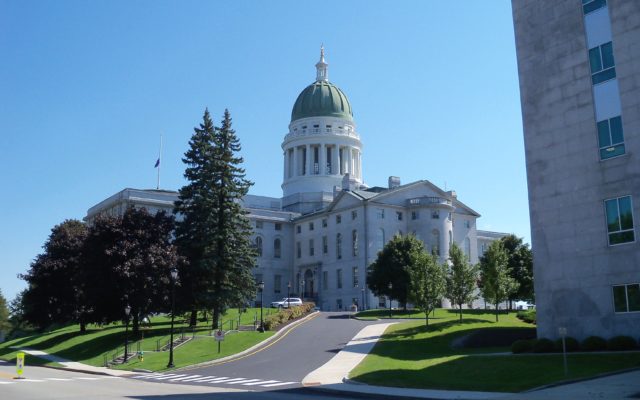
Big changes needed to net energy billing to protect Maine ratepayers
By Rep. Steven Foster, R-Dexter and Rep. Sophie Warren, D-Scarborough
We are members of the Maine Legislature’s Energy, Utilities, and Technology Committee, from both sides of the aisle — Republican and Democrat — and we urge our fellow legislators to protect Maine ratepayers by supporting the bipartisan amendment to LD 1347, “An Act to Reduce the Cost of Net Energy Billing for Ratepayers.†We want community and residential solar development by and for Maine residents, and LD 1347, as amended, is a bipartisan compromise that ensures stable, fixed rates for the small-scale and residential projects that net energy billing was originally designed to support.
We ask our fellow legislators to join us — along with Maine’s Public Advocate, AARP, and energy consumer groups — in the bipartisan effort to allow further solar growth in Maine while reducing the harm to Maine ratepayers.
LD 1347 as amended will save money for Maine ratepayers. Other choices do not. This bill will not end net energy billing. We don’t think it will not destroy solar expansion in Maine. Supporters of this bill are not against solar energy or a clean energy transition. It is a bipartisan view that solar energy can be a just and reasonable choice for Maine people.
The promise of solar is as a low-cost renewable energy resource, but the unintended consequences of 2019 legislation expanding net energy billing subsidies place a very high energy cost burden on Maine ratepayers. LD 1347, as amended, is a fair solution to solar developers and ratepayers. Maine has an expensive solar program, and without the compromise offered by LD 1347, Maine ratepayers will continue to pay windfall profits to developers — profits the Legislature never intended.
LD 1347 changes the existing price setting mechanism, which is flawed. Currently, net energy billing costs follow the same price increases as the cost of natural gas and other fossil fuels. That’s how the Public Utilities Commission formula is designed. It’s complex, but the bottom line is the price of net energy billing is based on the cost in electric rates of fossil fuels, which doesn’t make any sense. Renewable energy is supposed to be a solution to the price spikes of fossil fuels, not a means for solar developers to profit off the price differential.
With LD 1347, natural gas will no longer determine most of the price of net energy billing. Instead, the price will be set based on what a developer actually invests. Developers are assured to recover their costs and receive a fair profit on their investment.
For years, consumer groups have predicted that net energy billing would impose unnecessary costs on Maine ratepayers — unnecessary because we can have unlimited competitively priced solar at far lower cost. For four years, net energy billing supporters have universally denied this, arguing that not many projects would be built, and the costs wouldn’t get out of hand. However, data collected by neutral parties and confirmed by the PUC show that a gold rush of net energy billing projects came to Maine. When the PUC projected the annual cost of even a fraction of net energy billing projects coming online, the probable cost soared to more than $200 million a year. The Office of the Public Advocate tested those estimates and agreed.
Annual utility rate increases of more than $135 million, due in part to the cost of Maine’s net energy billing program, were approved last month by the PUC. This rate increase is another in the wave of anticipated price hikes. As more net energy billing projects come online, the higher this energy cost burden will be on Maine ratepayers, which will hit low-income, fixed-income, and hardworking Mainers supporting families the hardest. These new rates became effective for many of us and our constituents on July 1.
Commercial rate increases have also been enormous. Many of these ratepayers are shocked and frightened. These increases are partly due to net energy billing, and may have been avoided if we had procured competitively priced solar. We’ve had calls and emails from our constituents. The rubber is hitting the road.
The bipartisan compromise to LD 1347 will save ratepayers a significant portion of the $220 million projected annual cost to Maine ratepayers of net energy billing — money that stays in the pockets of hardworking Mainers. We cannot have a clean energy transition at the expense of Maine people and our most vulnerable populations, but that’s what the current net energy billing program is asking us to do. Please support LD 1347.
Foster represents District 32 in the Maine House of Representatives. Warren represents District 124 in the Maine House. Both are members of the Legislature’s Energy, Utilities and Technology Committee.